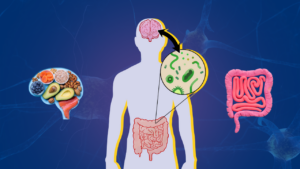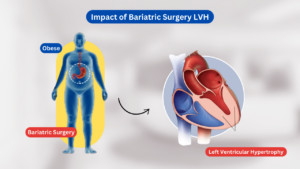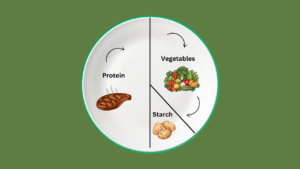
Yashvi Chheda
Bariatric Dietician & Content Writer

Importance of Bariatric Dietitians

Before we directly dive into the main heading, let us discuss a few basic terms.
What is a diet?
Diet is anything and everything that you eat or drink during your entire day. It could include your milk, paratha, sabzi, water, chocolate, icecream, pickles, etc.
So when you say “I’m on a diet”, dear, you are always on a diet unless and until you completely stop eating or drinking.
Hence, if you are following a certain type of diet, like keto diet, vegan diet, liquid diet, then that has to be specified while you tell anyone about it. You must spread awareness about this term “diet”.
Now, Let Us Understand What Do Dietitians Do?
Dietitians are medical professionals who specialise in nutrition and dietetics. They may also be referred to as registered dietitians or nutritionists, depending on the jurisdiction. Their main responsibility is to encourage good health and, through appropriate nutrition and nutritional advice, to prevent and treat a variety of medical disorders.
The following are some of the major jobs and duties of dietitians:
Nutritional Assessment: In order to understand a person’s nutritional needs and spot any nutritional imbalances or deficiencies, dietitians evaluate a person’s diet, health, and medical history.
Dietitians develop individualised nutrition programmes based on the assessment and each person’s unique health objectives, medical circumstances, lifestyle, and dietary preferences. These programmes could concentrate on general wellness, sports nutrition, disease management, or weight management.
Medical Nutrition Therapy: People with a range of medical illnesses, including diabetes, cardiovascular disease, gastrointestinal disorders, food allergies, and more, can benefit greatly from medical nutrition therapy, which is provided by dietitians. They collaborate with other members of a healthcare team to provide nutrition interventions that support medical therapies and advance improved health outcomes.
Education and Counselling: Dietitians instruct and advise people on the fundamentals of healthy eating, the value of a balanced diet, and how to make sensible food decisions. They educate customers on the connection between diet and health and give them the tools they need to change for the better.
Food Allergies and Intolerances: Dietitians help people who have food allergies or intolerances by creating specialised meal plans that stay away from foods that cause reactions while still providing adequate nutrition.
Community-based nutrition programmes, such as school nutrition programmes, public health initiatives, or corporate wellness programmes, can be designed and implemented by dietitians to address nutrition-related problems on a larger scale.
Research and Policy Development: Some dietitians work in research environments, contributing to nutrition research and aiding in the development of scientifically supported dietary recommendations and policies to enhance public health.
Dietitians may be involved in overseeing food service operations in places like hospitals, long-term care institutions, and schools to make sure that meals adhere to nutritional guidelines and satisfy special dietary needs.
Continuous Education: In order to give their customers advice and suggestions that are supported by the latest research in nutrition and health, dietitians stay up to speed on these topics.
Advocacy: Dietitians may promote better dietary guidelines and easy access to wholesome food options in their communities and elsewhere.
Dietitians are essential in guiding people towards and maintaining improved health through appropriate nutrition and dietary decisions. Their professional status as licensed and regulated individuals guarantees that the guidance and services they offer are founded on reliable scientific theories and cutting-edge nutritional techniques.
So, what does a bariatric dietitian do and can do?
Well, a bariatric dietitian and do, and do everything that other dietitians do. But additionally, they take long term care of the patients who have undergone bariatric surgery.
Counseling bariatric patients, keeping a track of their improvements, organizing support groups for them, taking care of their supplements, and obviously- taking care of their diet, right from the day patients decide to undergo bariatric surgery until they are on their own.
Oh wait, bariatric patients are never on their own. Bariatric dietitians are always there to support them and take follow ups for them.
Here are few things explained related to bariatric dietitians role:
Preoperative Evaluation: In order to create an individualised nutrition plan before bariatric surgery, the dietician evaluates the patient’s current eating patterns, medical history, and nutritional condition. This may entail losing weight before the treatment to lower the risks of surgery.
Bariatric dietitians counsel and educate patients about the dietary adjustments they will need to make following surgery. To ensure that patients satisfy their nutritional needs while successfully reducing weight, they offer guidance on portion control, meal planning, food selections, and nutrient supplementation.
After bariatric surgery, the dietician helps patients navigate the many stages of the postoperative diet, which commonly entails clear liquids, full liquids, pureed foods, soft foods, and eventually solid foods. They make sure patients move through these phases safely and offer assistance with any problems that may occur.
Supplemental nutrition: Bariatric surgery may make it more difficult for the body to properly absorb some nutrients. In order to avoid nutritional deficiencies and maintain general health, dietitians collaborate with patients to identify probable deficiencies and provide the proper vitamin and mineral supplements.
Behaviour modification: Bariatric dietitians support patients in overcoming emotional or psychological obstacles associated with food and eating as well as helping them adopt healthy eating habits.
Support and Follow-Up: Through routine follow-up appointments, bariatric dietitians offer patients on-going support. They keep track of developments, resolve issues, and modify the diet strategy as necessary.
Taking Care of Special Dietary Needs: Some individuals may have unique dietary requirements because of illnesses or intolerances to certain foods. Dietitians that specialise in weight loss try to develop meal programmes that accommodate these particular needs.
Long-term lifestyle modifications are necessary for long-term success with bariatric surgery as a weight loss method. Dietitians encourage healthy diet and exercise to help patients keep off the weight they have lost.
Overall, bariatric dietitians are essential to the success of bariatric surgery because they give patients the information and encouragement they need to make healthier food choices, lose weight in a sustainable way, and improve their health. Working closely with a skilled bariatric dietitian is essential for anyone contemplating or undergoing bariatric surgery to ensure they receive the necessary support and assistance throughout their weight loss journey.







